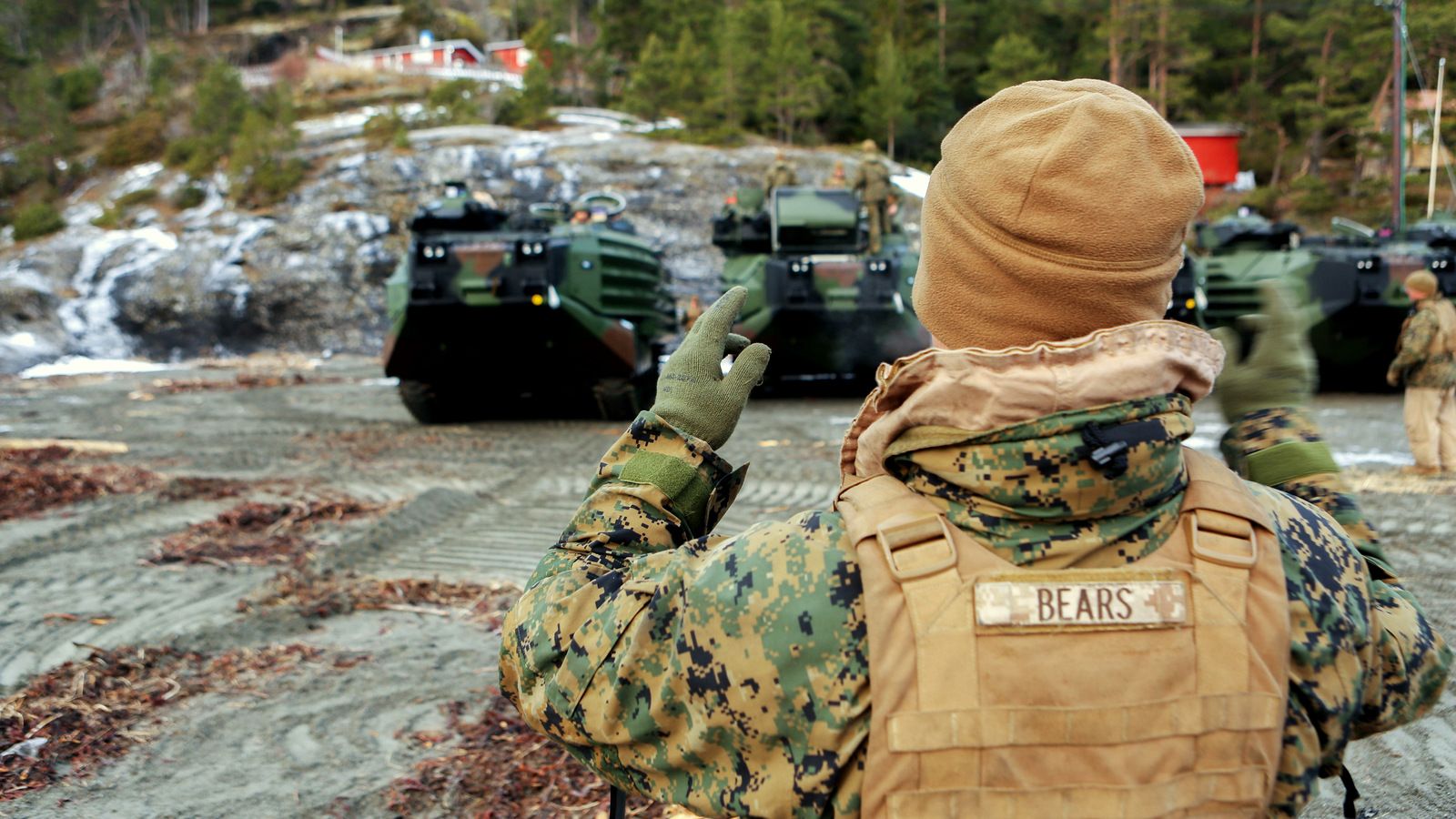Russia expressed surprise Friday about the mooted deployment of US troops in neighboring Norway.
“Taking into account multiple statements made by Norwegian officials about the absence of threat from Russia to Norway, we would like to understand why Norway is so much willing to increase its military potential, in particular through the stationing of American forces in Vaernes,” Maxime Gourov, the spokesman at the Russian embassy in Oslo said in an email sent to AFP.
Vaernes lies about 1,000 kilometres (600 miles) from the Russian-Norwegian frontier.
On October 10, the Norwegian defence ministry said its military and that of the United States were holding preliminary discussions about the possibility of such a deployment and about “additional training and storage.”
“It may be something that is carried out on a rotational basis… (but) there is no question of permanent deployment,” a ministry spokesman, Ann Kristin Salbuvik, told AFP.
The tentative discussions take place against a backdrop of increasing tensions between Russia and the West, notably over Ukraine and the conflict in Syria.
Also on October 10, the Norwegian newspaper Adresseavisen said the Pentagon wanted to station 300 US Marines at Vaernes and that this could take place in January.
The US has vast amounts of military equipment prepositioned in Norway, notably in tunnels dug into mountains.
“Having a rotational presence in Norway enhances the collective ability of our two forces to work together,” Niel Nelson, the US general in charge of the Marine Corps in Europe and Africa, was quoted as saying by American media this week.
Before joining NATO in 1949, Norway allayed Russian fears by undertaking not to open its territory to foreign combat troops so long as Norway was not attacked or threatened with attack.
This pledge was later amended to allow foreign troops to conduct manoeuvres in Norway.
“The policy of non-stationing (of foreign troops), which even withstood the test of the Cold War, has always been an advantage for Norway as a partner over other NATO countries,” said Gourov.
In July, NATO announced it would deploy, also on a rotational basis, four multinational battalions to Poland and to Baltic states to deter any Russian incursion.










